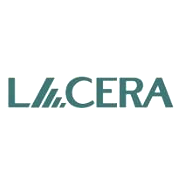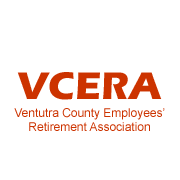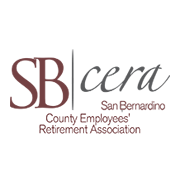What Happens if Your CalPERS Overpaid You
In May 2018, a Fourth District Court determined in Krolikowski v. San Diego City Employees’ Retirement System that two overpaid retirees had no valid defense against the SDCERA in recouping payments erroneously made to the retirees for the previous seven to twelve years. The error was a result of SDCERA’ miscalculation of monthly payments due to the former employees. When an audit uncovered the error, SDCERA concluded that it had overpaid the two retirees $17,049.48 and $18,783,99 for the relevant time period. SDCERA then sought to recoup payments from the retirees, with interest.
The two retirees brought suit against SDCERA, arguing that the system was not authorized under law to take action to recoup an overpayment of pension benefits. Ultimately, the court rejected that argument, opening the door for public agencies such as CalPERS to reduce monthly checks to recover amounts erroneously paid to retirees.
In fact, based upon the Krolikowski precedent, the CalPERS retirement system can legally collect up to three years’ worth of overpayments, which can amount to tens of thousands of dollars. This puts a tremendous strain on a retiree who is likely dependent upon that money to live.
Firefighters Lose CalPERS Overpayment Appeal
To further illustrate the point, in 2016, two firefighters in Davis, California who retired in 2009 and 2012 discovered that their pensions were subject to reduction to repay $28,000 and $42,000 in overpayments. These overpayments occurred as a result of CalPERS determining that a negotiated union contract allowing the conversion of health insurance payments into longevity pay did not comport with state law. The firefighters appealed the change in policy, but the appeal failed in state court, leaving them to foot the bill for the overpayments.
The Law on CalPERS Overpayments
The first step retirees generally take when faced with overpayment charges is to take their case to CalPERS’ Board of Administration. Once administrative remedies have been exhausted, the retirees may file lawsuits or even contact state legislators. The sad reality is, however, that California law places the responsibility for making up overpayments on the former employees. Courts across California have established that CalPERS has broad authority to apply its interpretation of state law to individual cases.
In other words, retirees who feel they have been wronged have an uphill battle to fight. Current law, in short, is against them.
How CalPERS Overpayment Mistakes Occur
Cities, counties and other government agencies around the state rely upon CalPERS to oversee and administer employee pensions. At the same time, those agencies negotiate various contracts with labor unions that set employee pay and benefits.
Such negotiations result in rather creative and unique pay arrangements. For instance, special pay considerations that add to employee pensions may be as “creative” as compensation for riding a horse, working in a schoolyard or routinely using sandblasting equipment. While a governmental agency may determine that such unique types of pay are pensionable, the final decision rests with CalPERS.
Many of the mistakes that have been made are a result of determining what types of “special compensation” (such as bonuses, hazard pay, bilingual pay and myriad other payments) affect the final determination of a retiree’s pension.
CalPERS reviews pensions in a number of different ways, including in regular audits. Recent disputes over pension mistakes have arisen due to a change in interpretation by CalPERS regarding what is considered in determining a pension once an employee retires.
How to Appeal a CalPERS Overpayment Decision
The general avenue of appeal of a CalPERS decision begins with the state Office of Administrative Hearings, a division of the Department of General Services. Those appeals make their way to administrative law judges, who make decisions after hearing arguments from CalPERS and from the employees (or their representatives). If the administrative judge sides against the employee, a petition may be filed with the CalPERS Board of Administration.
The case would then be placed on an agenda for a CalPERS board meeting, where board members review the arguments from CalPERS and from the appealing employees.
Proposed Changes to CalPERS Overpayment Laws
Upon becoming aware of the Davis firefighters’ plight, Connie Leyva, D-Chino, championed a proposal to change the law. She introduced Senate Bill 266, which would make employers responsible for the mistakes rather than retirees. Of course, a number of local governments have expressed opposition, based on their contention that if responsibility was determined to lie with the employers, it would ultimately be the taxpayers who would end up paying for the errors.
CalPERS Retirement Disability Attorneys
Our Long Beach attorneys will diligently follow the progress of the proposed Senate bill to change CalPERS overpayment law.
If you are injured on the job close to the time you intend to retire, we would be happy to help you determine your eligibility for disability retirement under the CalPERs system.
Free Consultation with a CalPERs Attorney: 562-622-4800
This article applies to members of California Public Employees’ Retirement System (CalPERS); and does not reflect the rules, laws or regulations governing how other public retirement systems are administered. If you have question about another public employee retirement system, find your system, below – or call our attorneys at: 562-622-4800

Thank You for Visiting Our Disability Retirement Blog!
Our highly specialized disability retirement attorneys are committed to ensuring that every injured or disabled public employee obtains the disability retirement benefits he or she has earned.
We have successfully filed hundreds of disability retirement applications and appeals – obtaining millions of dollars in disability retirement benefits in our four decades of legal service.
In our Disability Retirement Blog, our attorneys keep you updated on the latest, news and information pertaining to CalPERS, CalSTRS, OCERS, LACERA. SBcera, VCERA & SDCERA disability retirement.











